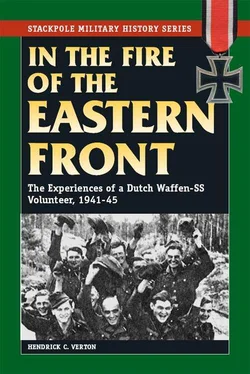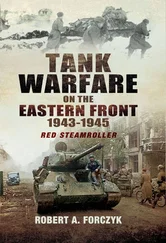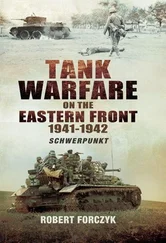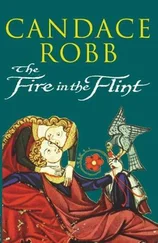A good percentage of the foreign press did not withhold compliments either. The Daily Express, for instance, said “the man has worked wonders”. The Dutch newspaper De Telegraaf reported that Hitler had destroyed the danger of Communism in Germany, even before becoming Chancellor. A Catholic paper, De Tijd, agreed with Hitler “that the fight against Marxism had been a fight for life over death”. A Dutch anti-revolutionary newspaper, De Standaad, formulated their opinion as, “the freedom In the Weimar Republic had led to extremes, and lack of godliness had increased”. As late as 1938, a Dutch Jewish newspaper agreed that “one cannot reject everything that National Socialism creates”.
Naturally enough there were other opinions. The Dutch Communist newspaper described Hitler as “the new Chancellor, the farmhand of the German bank capital of the larger industrialists, and an East Prussian country bumpkin”. They further suggested that National Socialism would not last long, that Communism would march in, free the working classes and guide them to a socialist ‘Soviet-Germany’. The Dutch population looked on in interest at the developments, and waited. It was generally accepted that Germany had done the right thing in freeing itself from the chains of the Versailles Pact. The Dutch Establishment however could not but help envy Hitler’s and Mussolini’s success. Perhaps, if the truth be known, they were afraid that certain sections of the population doubted their capabilities as protectors, which had been loudly proclaimed.
To combat this, negative campaigns were broadcast that Germany was approaching bankruptcy and Hitler about to die, being incurably ill. Those who lived in the border areas did not believe those stories, or allow themselves to be influenced, in view of flourishing employment possibilities. They peddled to and from their work over the border. In fact, when as unemployed you rejected work in Germany when offered it, then the Dutch authorities stopped your unemployment benefit. They damaged their prestige by such action, but in part it solved their unemployment problem, even when they did not want to admit it. To offset this criticism, the Dutch press was always ready to propagate negative stories about Germany, and to publish public opinion in detail. The success of Germany’s new government was being deliberately ignored.
That cannot be said for the Dutch businessmen and the commercial representatives who were impressed with Germany’s industrial creativity and who wanted a closer working relationship. They saw vast opportunities for their own land. Through the Buro Ribbentrop, named after Germany’s Minister for Foreign Affairs, Joachim Ribbentrop, the German-Dutch Association was formed. It concentrated on the traffic of business, not only with one another, but specialising in western Europe.
My father visited Germany too, buying machines in Mönchengladbach, and negotiating with IG Farben AG. He was fascinated with the modern technology presented at the exhibitions, in both Hannover and Leipzig. As a director of a rubber factory, he then engaged two Germans to work for him, one as a ‘master’ and the other as an engineer. Both were ‘old school’ diligent workers. The constant contact between my father and those treasured workmen, being examples of German discipline and enthusiasm, won father’s sympathy for the Hitler ‘fans’ and the ‘new order’.
For us young folk, Germany was a large and distant land. It stretched far to the east, with its rich countryside of gentle hills, dark forests and high mountain ranges, and to the south. That is how it was described to us in our school, none of us having seen it with our own eyes. Germany was also the ‘land of birth’ of those wonderful model railways and metal cars, from the firm Märklin. For us boys it was ‘Märklin land’. The model soldiers with their authentic, decorated and highly coloured uniforms and the ‘Made in Germany’ label, fascinated us. The significant uniforms of the German Wehrmacht were more familiar to us than those of our own Army.
We were also impressed with the sporting idols of our next-door neighbour, such as the BMW moi orcycle rider George Schorsch Meier, the World Champion boxer Max Schmeling, and our favourite Auto-Union racing driver Bernd Rosemeyer. We gladly changed to Radio Bremen to hear martial music, or the songs of Marika Rökk, such as On a night in May, which represented Germany for us. Otherwise there were, in comparison, the Anglo-Saxon songs of Louis Armstrong, presented for hours on end by Radio Hilversum.
The successful developments of the Republic, under Hitler, had a political influence on Holland, in that the National Socialist Movement (Bewegung) the NSB formed in 1931. An independent associate party of the NSDAP had a sensational increase in membership. Their Party programme was very similar to that of Benno Mussolini’s party, being “true to the King, Social Rights and anti-Marxist”. At the beginning they showed no signs of anti-Semitism. In the mid-thirties, there was a total of 56 parties in Holland, nearly all quarrelling with one another.
The leader of the NSB, a water-engineer called Anton Mussert, was a 100% conventional Dutchman, with strong ideals. In ‘better circles’ his party was fully accepted, because of its strong anti-left character. It drew in businessmen, officers, retired Colonial officials, those from the middle classes and free-lance individuals. Baron de Jorge, Holland’s Governor General and former Colonial, did not relect the National Socialist Movement either. The disillusioned unemployed also gave it their support. The NSB held 8% of the indirect Parliament Election of 1935, being 300,000 votes with which Mussert was more than con tent. In the cities of Amsterdam, the Hague and Utrecht, the party held 10% and 39% in the eastern border counties adjacent to Germany.
The success of the NSB shocked the govern ment in the Hague and they had to deal with the consequences. It was, from that moment on, forbidden for officers and officials to be party members. Some obeyed this rule. It must be pointed out that, for those unemployed to be engaged in a permanent position as an official, it was a treasured one. Other Mussert fans stayed true to the NSB and so the movement had its first ‘martyrs’, which they used to the full for propaganda purposes. The world of the 1930s in Holland was comparatively peaceful in view of the commercial situation, and was practically uneventful for us boys in the country. Much appeared to be petitbourgeois conservatism. We boys wanted a challenge or two. Singing songs around the Boy Scout camp fire or playing games was fun, but did nothing to fulfil our ambitions. We saw photos of German youths in uniforms, with short trousers, sitting in gliders of the Hitler Youth, or being able to race DKW motorbikes, which we could only envy. This was smart, dynamic and paid for by the state and held our admiration, for who could afford a motorbike or a glider at our age?
On 14 March 1919, the National Assembly in Vienna agreed that Austria annexe itself to the German Empire. In Germany it was a sensation. But it was immediately refused by the ‘victors’. This had to wait for twenty years.
The pro-German movement had steadily grown as in the years before. In the end, it could not be suppressed and came into power, but not without some bloodshed, or spasmodic opposition. The Ostmark region laid itself at Hitler’s feet and he readily accepted the new duty. The Wehrmacht marched from Bavaria, over the borders, to be showered with flowers from the enthusiastic Austrian population. Street after street was made free for what was thereafter to be called the ‘Flower Campaign’. A month later, 99.75% of the Austrian people voted for annexation to Germany and the church gave its effusive blessing.
Читать дальше












